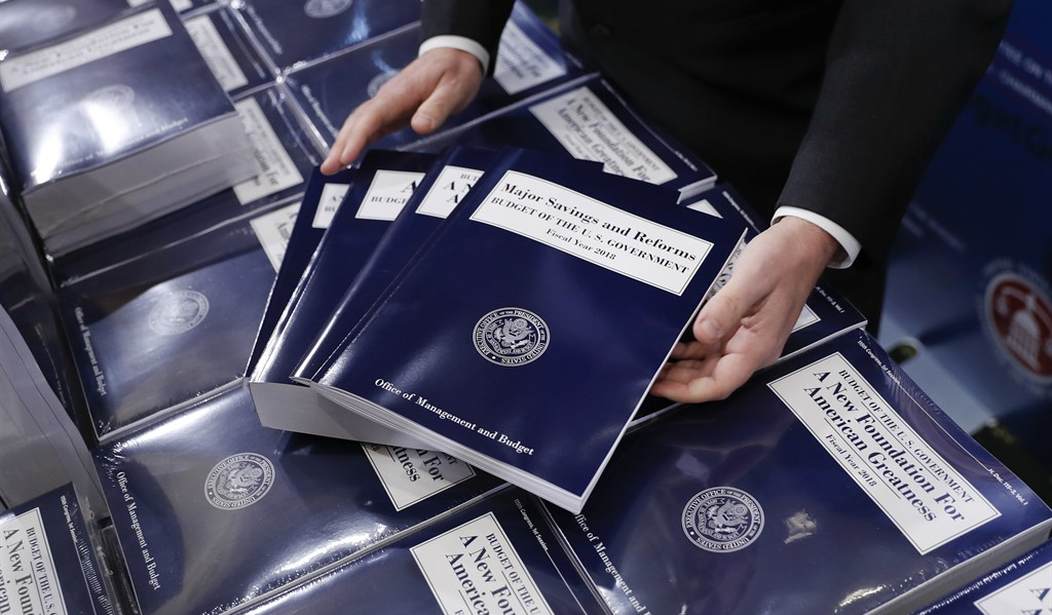The Trump administration has released its first full budget and the predictable Washington histrionics have begun. While the budget doesn’t fully address the real drivers of America’s long-term debt – entitlement programs like Social Security and Medicare – the president’s proposal does offer more fiscal responsibility than past White House budgets as it sets out to respect the modest discretionary spending caps established under current law and wind down the subterfuge of “off-budget” spending.
Federal budgets – unlike spending and other policy proposals – cannot be sexy because a budget can only establish the process by which all other policy decisions are made while preserving fiscal sustainability. By this account, the Trump budget has two key provisions that everyone should like.
First, the Trump budget proposes maintaining bipartisan spending caps. Following the Great Recession and mounting concerns over the ballooning federal debt, in 2011, the Republican Congress and Democrat president came to an agreement called the Budget Control Act (BCA) to set legal limits on the amount of money Congress could appropriate each year. The present fiscal path of the United States is undeniably unsustainable; the growing debt burdens our economy today and threatens to deny future generations any chance at prosperity. In being crafted by both sides of the aisle, the BCA caps elevate discussions of reducing spending and reining in federal debt from partisan bickering to meaningful debate on a shared national priority. These spending limits will not solve the looming fiscal challenges alone, but have yielded the only substantive progress toward addressing the explosion in spending and debt over the past five years.
The Trump administration’s proposal takes another important step toward restoring fiscal sanity by upholding the bipartisan promise to cap discretionary spending. President Trump’s position represents a sharp contrast with President Obama, who pressured Congress into breaking the BCA caps for four of the five years after they were implemented.
Recommended
Second, the Trump budget proposes to minimize one of the most egregiously overused budget gimmicks of the past several years. Since implementation of the BCA, Congress has allowed certain unforeseeable or temporary expenses to not be subject to the base spending caps. These “cap adjustments” include disaster response and other emergency funds, but Congress has recently used what should be modest, one-time contingency funds to boost regular spending levels. While allowing for variable spending makes sense, the misuse of the cap adjustments sends extra funding to favored programs without judging that spending against the rest of the nation’s budget priorities. Last year alone, Washington spent more than $100 billion through these “off-budget” accounts.
The Trump budget proposal would bring that money back into the broader discussions about allocating taxpayer dollars, by increasing the base accounts subject to spending caps and reducing the off-budget cap adjustments to just $21 billion over five years. This is likely to improve policy outcomes as congressional spending decisions will be subject to a meaningful accounting basis, forcing lawmakers to send taxpayer resources where they are most useful.
One camp of the president’s budget critics argues that the administration’s economic assumptions are too bullish on the growth effects of new policy proposals. This criticism is not new, as similar arguments were made against the Obama administration, theGeorge W. Bush administration, the Clinton administration, the Reagan administration, and likely every other administration. Another group of critics suggest that the specific programs or agencies named for reform, consolidation or elimination are the wrong ones to target, while others argue that the debt and deficits are not being sufficiently reduced.
The problem with these critiques is that they misrepresent what a president’s budget is meant to do – the document is a statement of goals of an administration and a justification of priorities. It should come as no surprise to anyone that the administration proposing a set of economic policies and programmatic reforms believes those policies will have significant positive effects. Further, a president’s budget proposal has never passed Congress since the modern process was created in 1974, so concerns regarding the scope or size of spending proposals in Trump’s budget are unfounded – if the elected representatives of the American people don’t like the proposals, they are under no obligation to even consider them.
Disagreement over policy decisions are the sign of a healthy republic, as is the shared recognition of national fiscal challenges. Members of Congress in both parties would be well-served to begin their debate within the common-sense budget framework laid out by the Trump administration.

























Join the conversation as a VIP Member